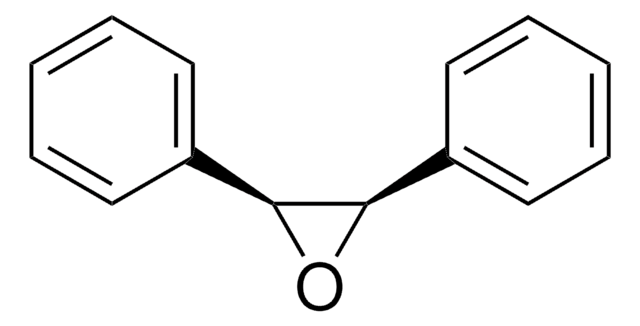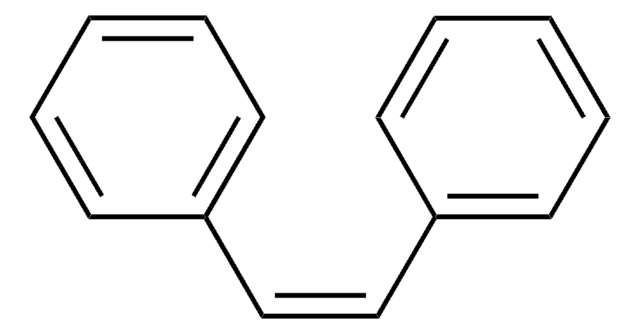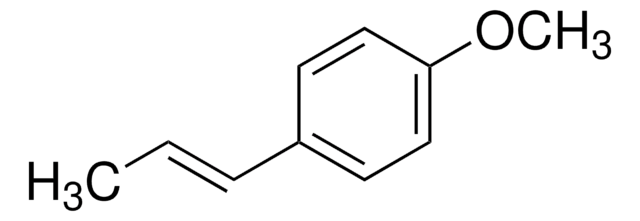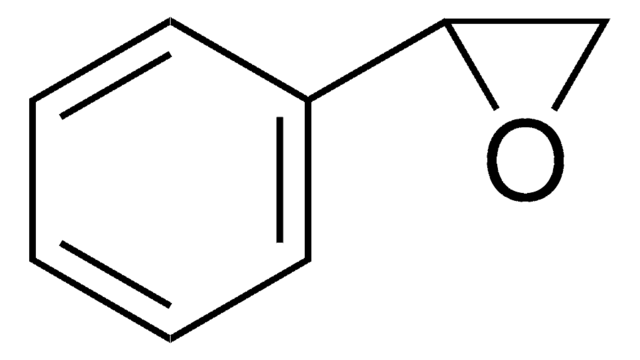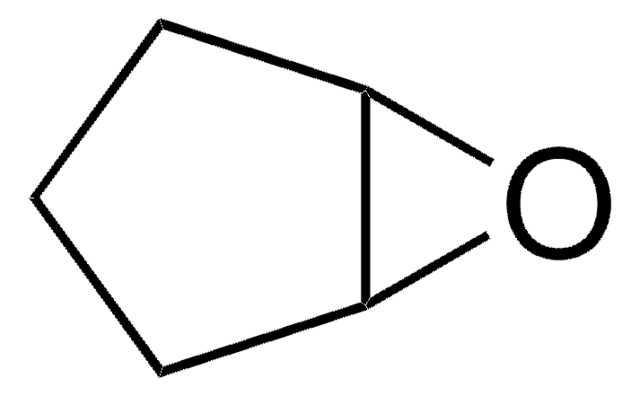S4921
trans-Stilbene oxide
98%
Synonym(s):
trans-1,2-Diphenyloxirane
About This Item
Recommended Products
Assay
98%
mp
65-67 °C (lit.)
SMILES string
O1[C@@H]([C@H]1c2ccccc2)c3ccccc3
InChI
1S/C14H12O/c1-3-7-11(8-4-1)13-14(15-13)12-9-5-2-6-10-12/h1-10,13-14H/t13-,14-/m1/s1
InChI key
ARCJQKUWGAZPFX-ZIAGYGMSSA-N
Looking for similar products? Visit Product Comparison Guide
General description
Application
- Chiral Stationary Phases for Liquid Chromatography: Trans-stilbene oxide has been utilized in the fabrication of cellulose derivative-coated spherical covalent organic frameworks, serving as chiral stationary phases for high-performance liquid chromatographic enantioseparation, demonstrating its pivotal role in advanced analytical methodologies (Yan et al., 2022).
- Method Selection for Chiral High-Performance Liquid Chromatography: Its application extends to the utilization of hysteresis phenomena for chiral high-performance liquid chromatographic method selection in polar organic mode, enhancing the efficiency and specificity of pharmaceutical compound analysis (Horváth et al., 2020).
- Adsorption Properties for Enantioseparations: The effect of chiral selector loading on the adsorption properties of fully- and superficially-porous particles is crucial for high-efficient ultrafast enantioseparations, where trans-stilbene oxide derivatives play a significant role (Felletti et al., 2018).
- Catalysis in Alkene Epoxidation: Trans-stilbene oxide is involved in innovative catalysis research, specifically in the development of carbon nitride-supported Fe(2) cluster catalysts for alkene epoxidation, showcasing its utility in sustainable chemical synthesis (Tian et al., 2018).
Storage Class Code
11 - Combustible Solids
WGK
WGK 3
Flash Point(F)
Not applicable
Flash Point(C)
Not applicable
Personal Protective Equipment
Certificates of Analysis (COA)
Search for Certificates of Analysis (COA) by entering the products Lot/Batch Number. Lot and Batch Numbers can be found on a product’s label following the words ‘Lot’ or ‘Batch’.
Already Own This Product?
Find documentation for the products that you have recently purchased in the Document Library.
Customers Also Viewed
Our team of scientists has experience in all areas of research including Life Science, Material Science, Chemical Synthesis, Chromatography, Analytical and many others.
Contact Technical Service